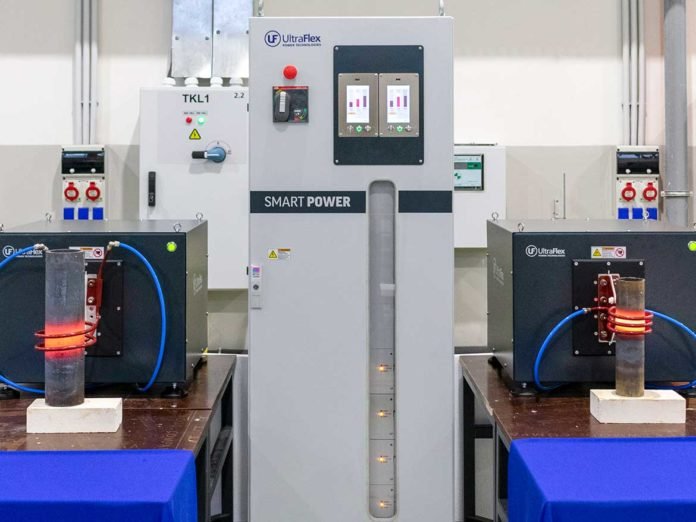Induction heating is a versatile and efficient heating method that utilizes electromagnetic induction to generate heat within a conductive material. This technology has gained significant recognition across various industries due to its numerous applications and notable benefits. In this article, we will explore the diverse applications of induction heating and discuss the significant advantages it offers.
Industrial Applications
Induction heating is widely employed in the hardening and tempering processes of metals. It provides rapid and precise heating, allowing for localized hardening of specific areas while maintaining the desired mechanical properties of the material. This application is particularly valuable in the automotive, aerospace, and manufacturing sectors.
Brazing and Soldering
Induction heating is highly effective for brazing and soldering applications. By heating the base metal and filler material simultaneously, it creates strong and reliable joints. This method is extensively used in the production of electronic components, plumbing systems, and automotive parts.
Annealing
Annealing is a heat treatment process that enhances the ductility and machinability of metals. Induction heating offers excellent control over temperature and time, making it ideal for annealing various materials, including steel, copper, and aluminum. This application is commonly found in the production of wires, tubes, and sheet metal.
Induction Cooking
Induction heating has revolutionized the way we cook. Induction cooktops use magnetic fields to directly heat the cookware, resulting in faster cooking times and improved energy efficiency. This technology provides precise temperature control and enhances safety by eliminating open flames or hot surfaces. Induction cooking has become increasingly popular in households, restaurants, and commercial kitchens.
Induction Heating for Appliances
Induction heating finds applications in various household appliances, including water heaters, clothes dryers, and dishwashers. Its efficiency and quick heating capabilities make it an ideal choice for these devices, reducing energy consumption and improving overall performance.
Induction Melting and Casting
Induction heating is extensively used in metal casting and foundry operations. It enables efficient and controlled melting of metals such as steel, iron, and aluminum. Induction melting provides precise temperature management, resulting in high-quality castings with reduced impurities and improved mechanical properties.
Energy Efficiency
Induction heating is an energy-efficient technology compared to traditional heating methods. Its direct heating approach minimizes heat loss and results in significant energy savings. The precise heating control also contributes to reduced energy consumption and shorter processing times.
Safety and Cleanliness
Induction heating offers enhanced safety features as it eliminates the need for open flames, reducing the risk of accidents and fire hazards. Additionally, the absence of combustion byproducts makes it a clean and environmentally friendly heating method.
Rapid Heating and Precise Control
Induction heating provides rapid and localized heating, leading to shorter process times and improved productivity. The ability to precisely control temperature and power allows for consistent and repeatable results, ensuring high-quality production.
The applications and benefits of induction disassembly heater make it a valuable technology in a wide range of industries. From industrial processes such as hardening, tempering, and melting to household applications like induction cooking, this versatile heating method offers energy efficiency, safety, and precise control. As industries continue to explore and harness the potential of induction heating, we can expect to witness further advancements and innovations that optimize its use in various fields.
Induction heating has already proven its effectiveness in industrial applications, such as hardening and tempering, brazing and soldering, and annealing. Its ability to deliver rapid and localized heating allows for increased efficiency, reduced energy consumption, and improved product quality. Industries that heavily rely on metalworking processes, such as automotive, aerospace, and manufacturing, can greatly benefit from the precise and controlled heating provided by induction heating technology.
In addition to industrial applications, induction heating has also made its way into households and consumer goods. The popularity of induction cooking has soared due to its advantages over traditional gas or electric stoves. Induction cooktops offer faster cooking times, energy efficiency, and enhanced safety features, making them an attractive choice for modern kitchens. Moreover, induction heating is finding its place in various household appliances, contributing to improved performance and reduced energy consumption.
The advantages of induction heating extend beyond its applications. The energy efficiency of this technology not only helps reduce operating costs but also contributes to sustainability efforts by minimizing energy waste. The precise temperature control and rapid heating capabilities result in increased productivity and shorter production cycles, making it a cost-effective solution for businesses.
Conclusion
In conclusion, the potential of induction heating remains untapped and continues to unlock new possibilities in various fields. From industrial processes to household applications, the benefits of this technology are evident in terms of energy efficiency, safety, and precise control. With ongoing research and development, we can anticipate further advancements in induction heating, expanding its reach and optimizing its utilization in diverse industries, ultimately shaping a more sustainable and efficient future.

